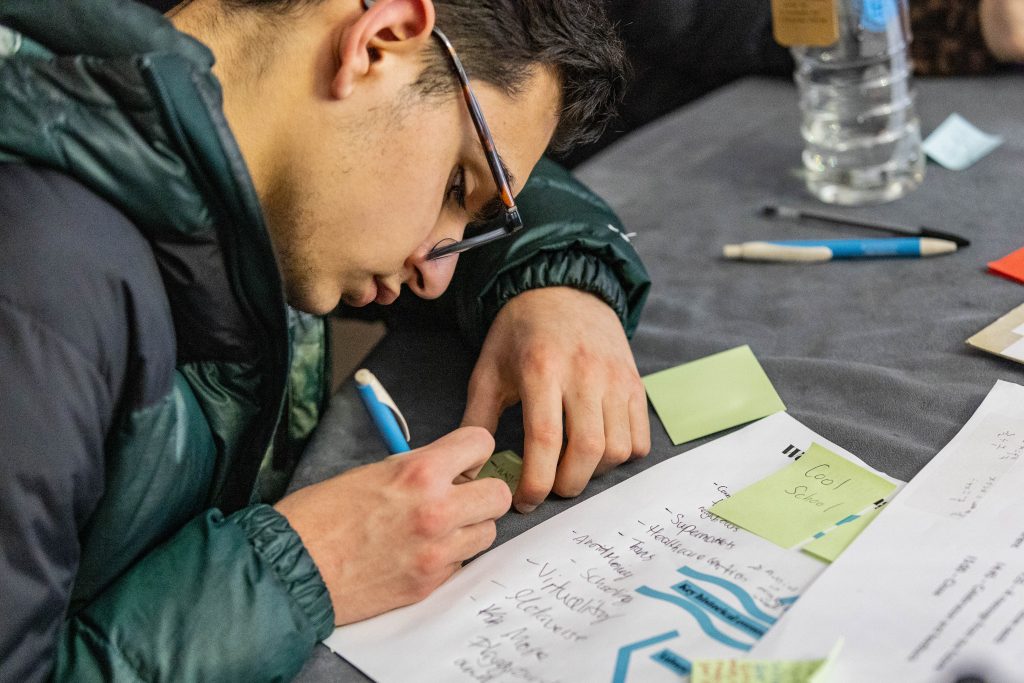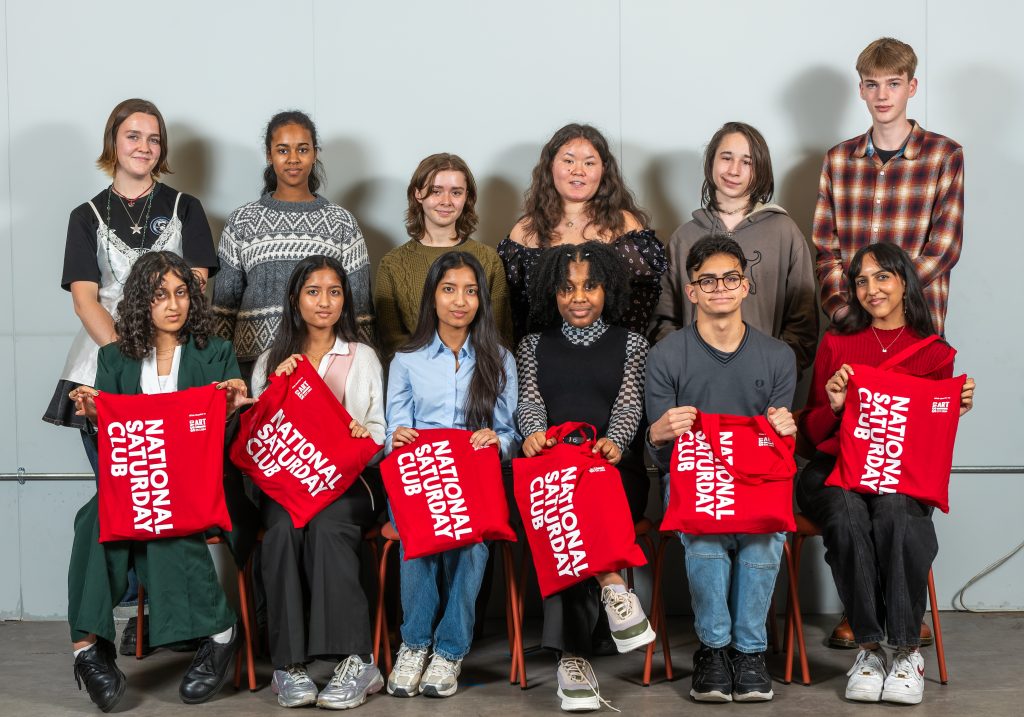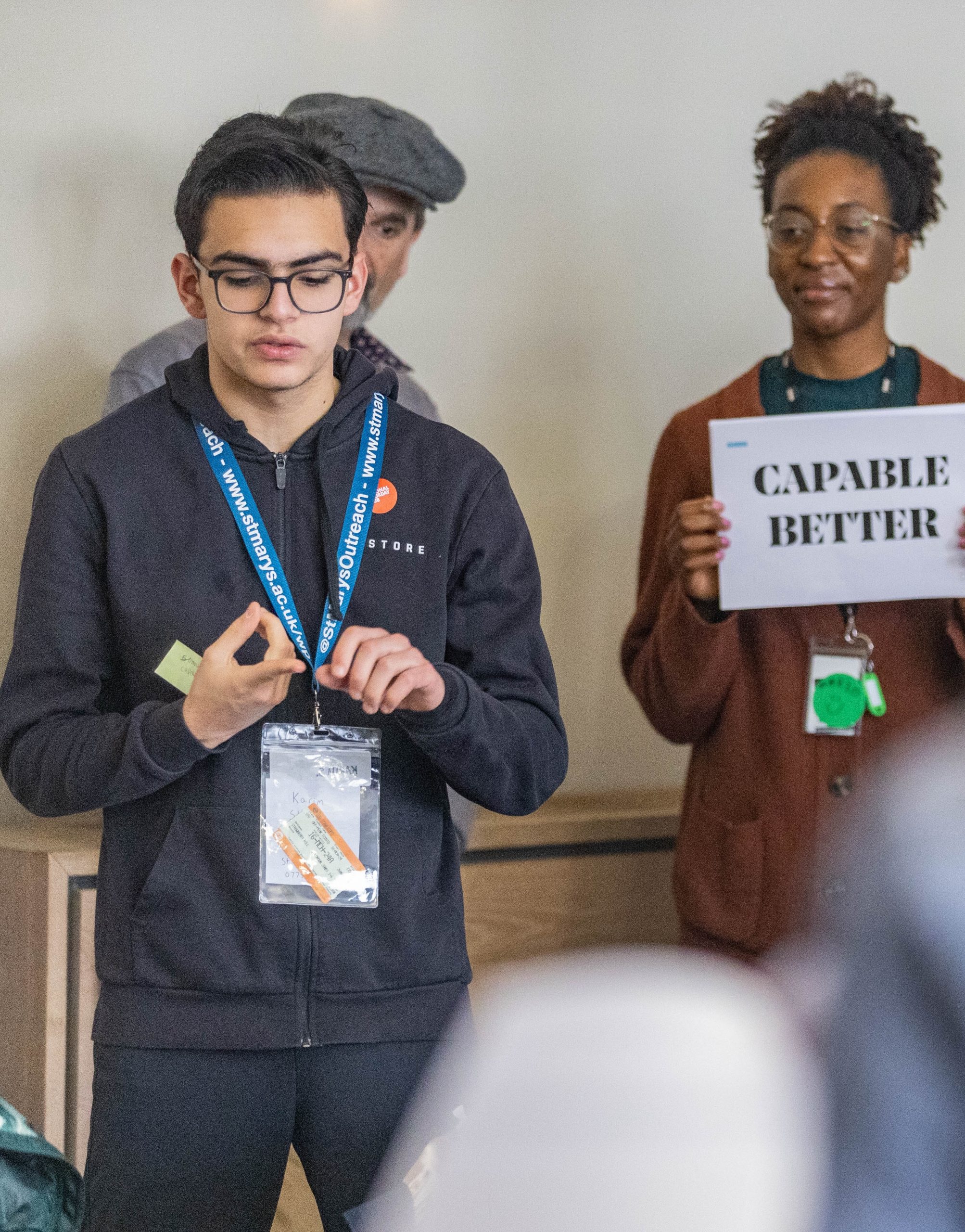We spoke with Karim, a former member of the Society&Change Saturday Club and now a member of the National Saturday Club Youth Board! Karim joined the Club to explore his passion for making a difference and to learn how to advocate for young voices. Through creative collaboration and thought-provoking discussions, he built confidence and discovered new career interests in activism, marketing, and business. Now studying Business at Kingston College, Karim reflects on how the Saturday Club expanded his perspective, strengthened his communication skills, and inspired him to keep working towards positive change.
What sparked your interest in attending a Saturday Club?
I joined the Club because I’m passionate about making a change. With everything happening in the world such as climate change, conflicts, violence and racism, I felt like it was important for me to do something. Even here at home, there are issues such as knife crime, and I want to make sure young voices are heard in these important issues. Ultimately, I wanted to learn how to advocate for youth.
Was there a difference between what you were doing at school and what you were doing at the Club? Tell us about your experience at the Club
At school and college, things can feel more formal, more restricted but at the Saturday Club, there was space to really collaborate, to be heard, and to take the lead.
We worked as a team, shared our ideas, and grew our creativity. It felt like a safe environment to express yourself and push ideas forward, especially ideas that could actually make a difference in society. We had real conversations about important issues – racism, climate change, identity, and culture – and what all of that means for us as young people today.
I even brought up topics that matter to me personally, like bullying and young people feeling unsafe in their communities. We weren’t just talking, we were thinking about how to make real change, not by changing ourselves, but by changing the game.
Do any moments from your time at the Club stand out to you?
Yes! One of the highlights was visiting the Royal Society of Arts in London for our Masterclass. We explored ideas around change in society, and I even got to perform in a play about the future, a story about two people meeting in a futuristic city, a hundred years from now. It was so creative and exciting, and I loved meeting people from other Clubs and hearing their perspectives.
Another standout moment was when I designed a youth centre for the future as part of the end of year Summer Show. The idea was to create a space where young people could have fun, stay away from negative influences like gang culture, and be encouraged to grow, away from screens and towards something more meaningful. Somewhere to learn, socialise, and explore new ideas. It was inspired by the conversations we had at the Club and by things I’ve been thinking about for a while. It felt good to finally bring that vision to life.
Did you learn about different careers you can go into?
Definitely, it got me thinking seriously about becoming an activist. But it also opened my eyes to other careers where I can use my voice and skills – like marketing, management, advertising, entrepreneurship.
Right now, I’m studying a Business BTEC Level 3 course at Kingston College. I chose business because it’s broad and gives me a lot of career options, it’s helping me figure out what I’m really good at. I’ve still got time to decide whether I’ll go to university or do an apprenticeship.
I’m particularly interested in marketing or business management. Business helps me develop a wide range of skills and gives me space to explore different directions based on what I enjoy and what I’m good at. I’m using this time to build a solid mindset for the future and figure out the right path, whether that’s university or an apprenticeship.
Did you learn any specific skills at the Saturday Club that you still use today?
The Club helped me develop active listening—really taking in other people’s ideas and learning from different views. That’s been huge for my communication skills, both verbal and non-verbal.
It also gave me the confidence to let others speak and express themselves, especially people from different cultures and backgrounds. I’ve become more aware of diversity, more empathetic, and more open-minded. These are skills I carry with me into college and hopefully into my future career.
Why did you decide to join the Youth Board?
I joined the Youth Board because I care deeply about people. I wanted to represent young people, show empathy, and help others feel heard. I’m also passionate about working in creative, diverse spaces – places where we can build teamwork, express ideas, and thrive together.
It’s not just about London – it’s about meeting people from different places, hearing their stories, and learning what matters to them. Even small things, like sharing music or talking about hobbies, show how unique and valuable each person is. That’s what drew me in.
Since being part of it, what has your experience been like and have you learnt anything new?
Being on the Youth Board has been incredible. It’s taught me that we all start in one place – but we grow, our thoughts expand, and our future opens up. We think about how to change society, how to be creative, and how to understand people better.
I remember one meeting where we explored how the mind works – thinking about how people and even animals behave, and how we can draw or express that creatively. That really stuck with me.
My favourite moment so far was the first in-person meeting at Somerset House. It was amazing to see the other Youth Board members in person, hear about their goals, and just connect – playing games, sharing food, having conversations. It was fun, inspiring, and you got to learn about different people.
Who, what or where inspires you?
What inspires me most is the bravery I have in speaking up and expressing myself. I’m a strong public speaker and a confident presenter, skills that are valuable in all kinds of careers and environments.
These qualities help me connect with people, understand different perspectives, and contribute meaningfully to conversations. They’ve shaped who I am and who I’m becoming.
If there’s one thing that you could make better in the world, what would it be?
It would be for people to truly understand that everyone is going through their own struggles. It’s so important to look beyond first impressions.
We need to stop judging people by one moment or one label and start appreciating their full story – their negative sides too. That kind of understanding brings people together.
And to make the world better, especially for younger generations, I think it’s also important to encourage activities that bring people together – like playing games and chatting face-to-face – without always relying on electronics. Sometimes, we just need to look up from our screens and truly see what’s in front of us.



Interview conducted and edited by Suprina Thapa